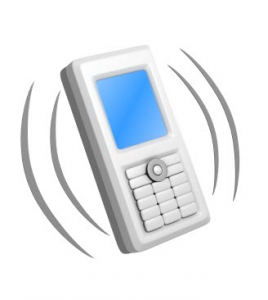Earlier this year, I attended a keynote presentation delivered by Simon Sinek. While Sinek released the book “Start With Why” in 2009, he may be most known for his TED talk “How Great Leaders Inspire Action“, which is one of the most viewed TED talks ever with well over nine million views to date.
During his Vistage conference keynote, Sinek shared a prelude to a book he’s currently writing about how certain chemicals affect the human body. It was a fascinating conversation during which he highlighted the affect four specific chemicals – Endorphins, Serotonin, Oxytocin, and Dopamine – have on us. What really struck me in Sinek’s talk was the affect dopamine has on our bodies.
According to Sinek, dopamine creates a natural high for people such that they feel good about themselves and their accomplishments. The reality though is that people experience that burst of dopamine in all kinds of situations, and these days quite often just from feeling their cell phones vibrate indicating a new text message or email has arrived.
“Oooh, someone likes me” and “Wow, this must be important” are common reactions I have to that cell phone buzzing by my side. Apparently, that buzzing literally sends a dopamine hit to my brain that makes me feel good about myself because I must be wanted and needed by someone. While it may feel great in the moment, that dopamine hit can become very addictive and even destructive over time when not managed properly and kept in check vis-a-vis my other life activities.
Research now shows that 28% of our work days – and therefore our careers! – is spent on email. And with today’s smart technology, that statistic is only likely to climb. Email can be productive in many regards, but sending email inappropriately can quickly become an anti-social and quite destructive behavior.
I can’t begin to count the number of times I’ve paused a live conversation because I saw an email arrive. And those aren’t even the group conference calls or online webinars that arguably were of little value anyway. I’m talking about the direct interactions I’ve had with my staff while sitting at my desk and even the conversations with my kids around the kitchen table!
This I believe is why Sinek claims we have become addicted to our cell phones. Information Age or not, he literally likened this anti-social behavior to an addiction no different than people abusing alcohol or nicotine or any other drug of choice. When that dopamine hit happens, we experience a natural drug that has similarly destructive implications.
Just consider the places where you have and use your cell phone. On your nightstand and in bed. On the golf course between holes, or even worse when you’re playing partner is hitting. I even have a colleague who was just sharing with me “the minor fender-bender” she had on the freeway when she saw an email come in that was so upsetting she simply had to respond to it immediately – yes, while still driving.
And it’s not just the email. One of my current clients answers his cell phone in the middle of any conversation we have whenever it rings. Whether we’re in his office behind closed doors or sitting in a restaurant working through lunch, he’ll grab his cell phone the second it rings. Presumably it’s OK though because he always apologizes as soon as he hangs up and puts the phone back down.
So I invite you to consider how addictive your cell phone is becoming, or more likely how addictive it has already become! What crucial conversations are you neglecting by grabbing that phone every time it rings? How much of a daily routine has it become to fire off an email as soon as you receive one regardless of what you might be doing and where you might be? As far as I know, Steve Jobs intended our iPhones to be productivity tools with a strong entertainment factor embedded within them. He did not expect us to become addicts and put our lives at risk!







